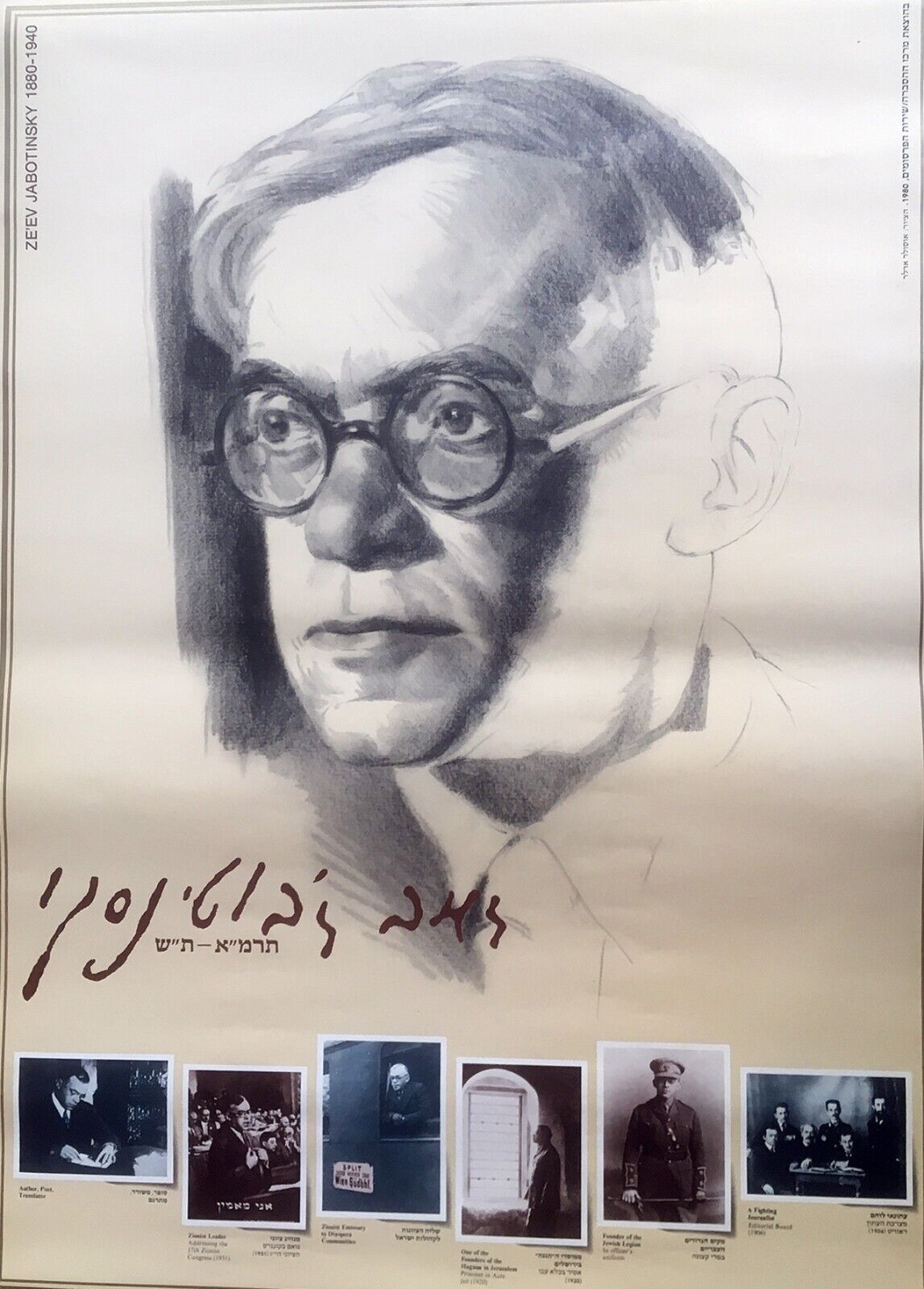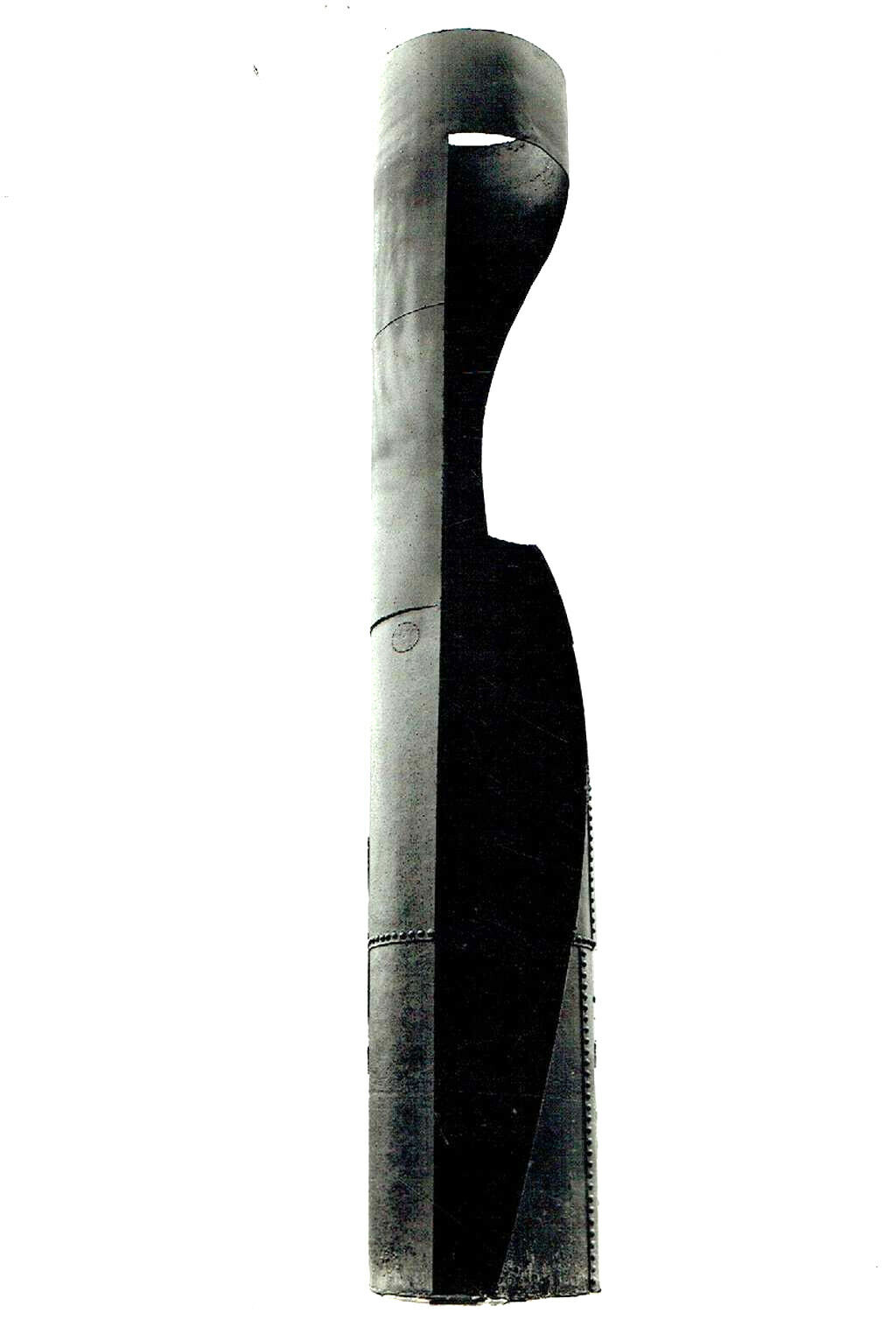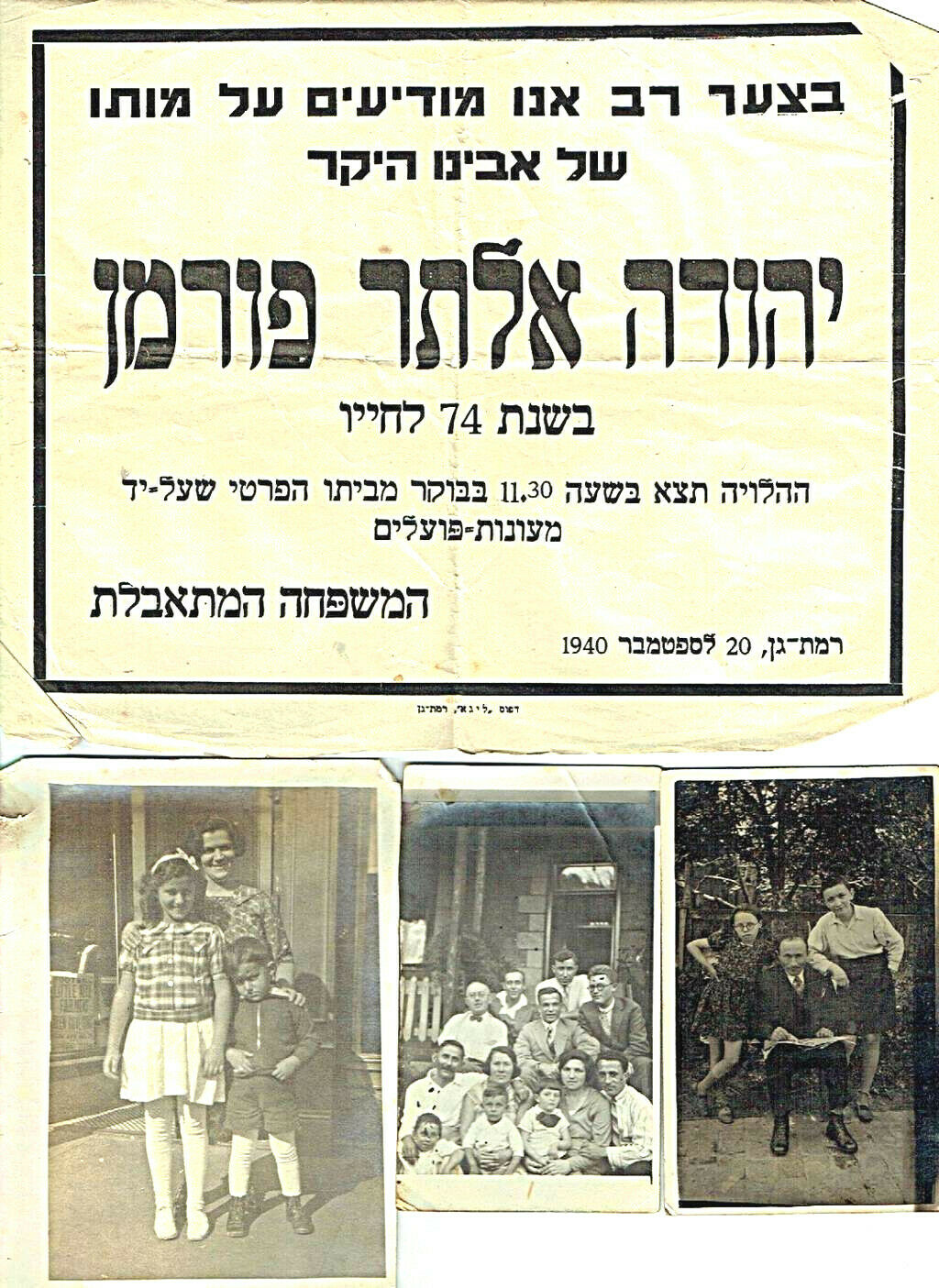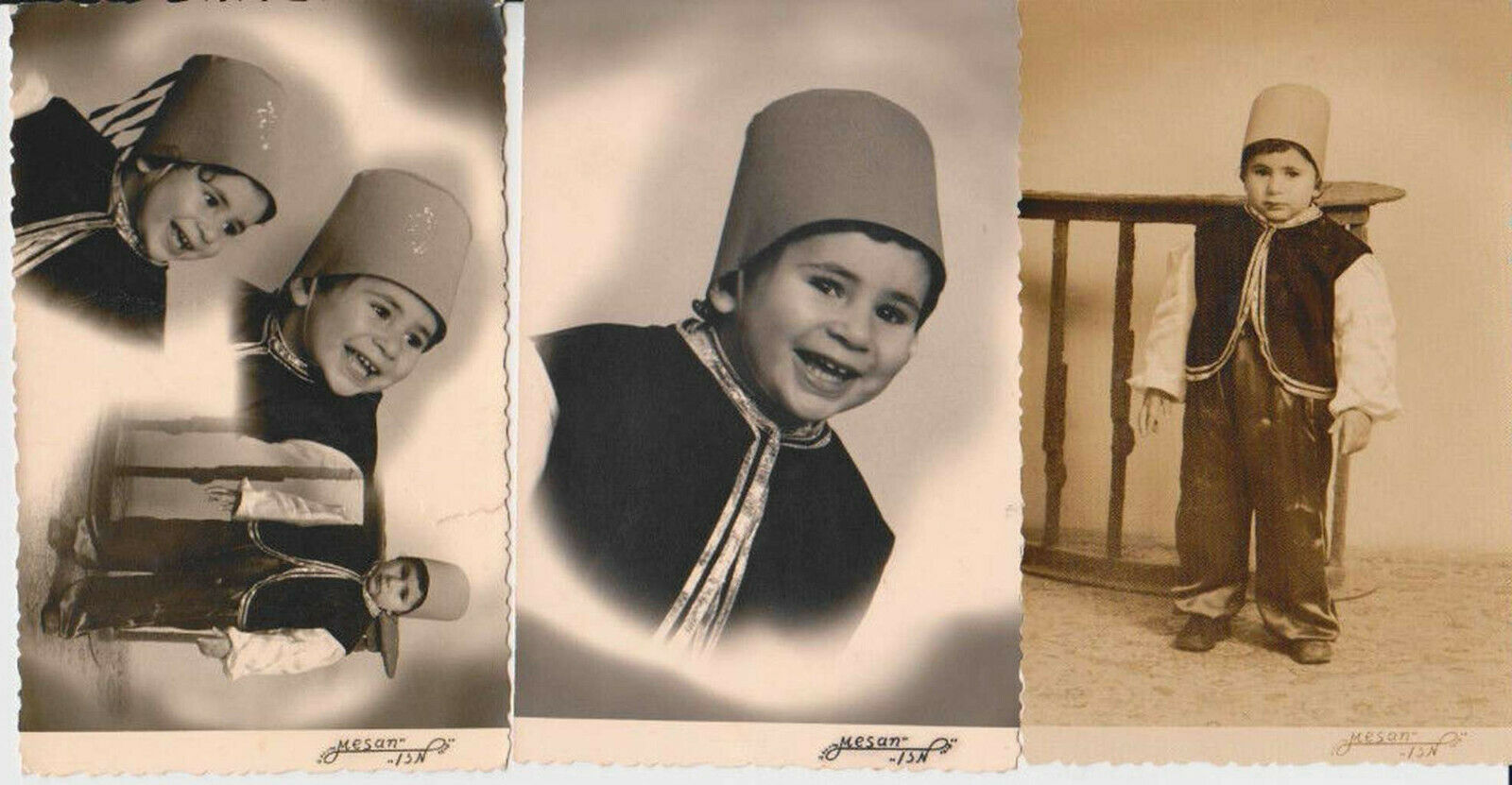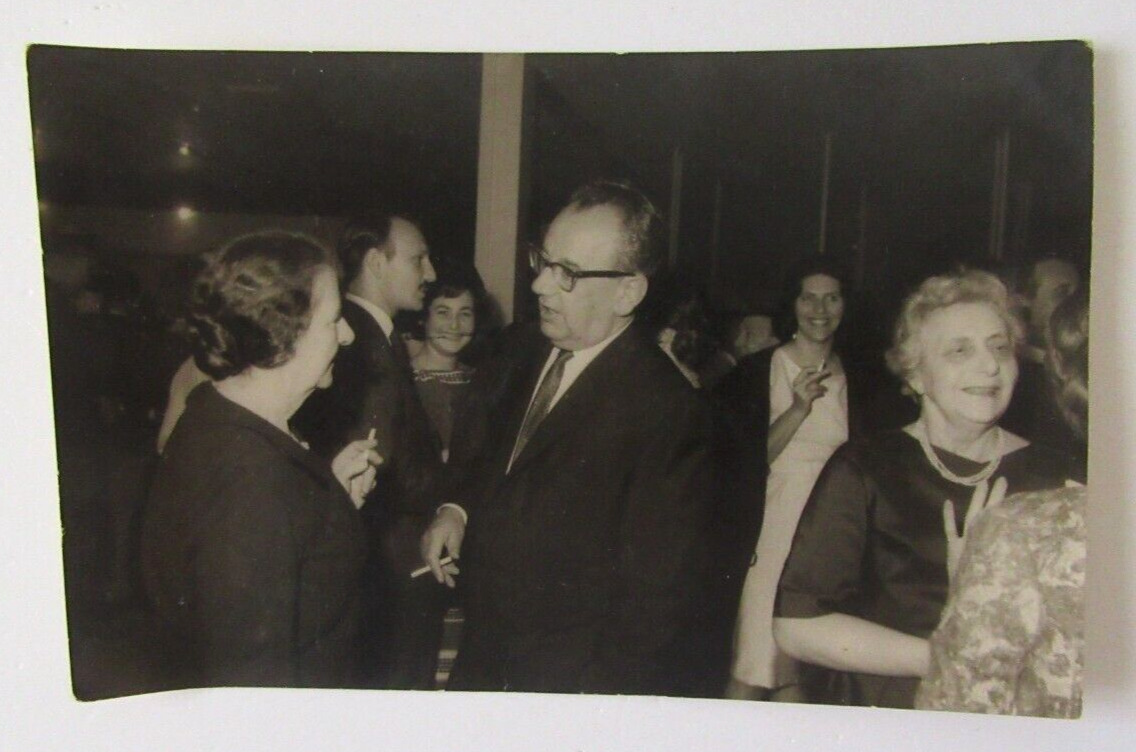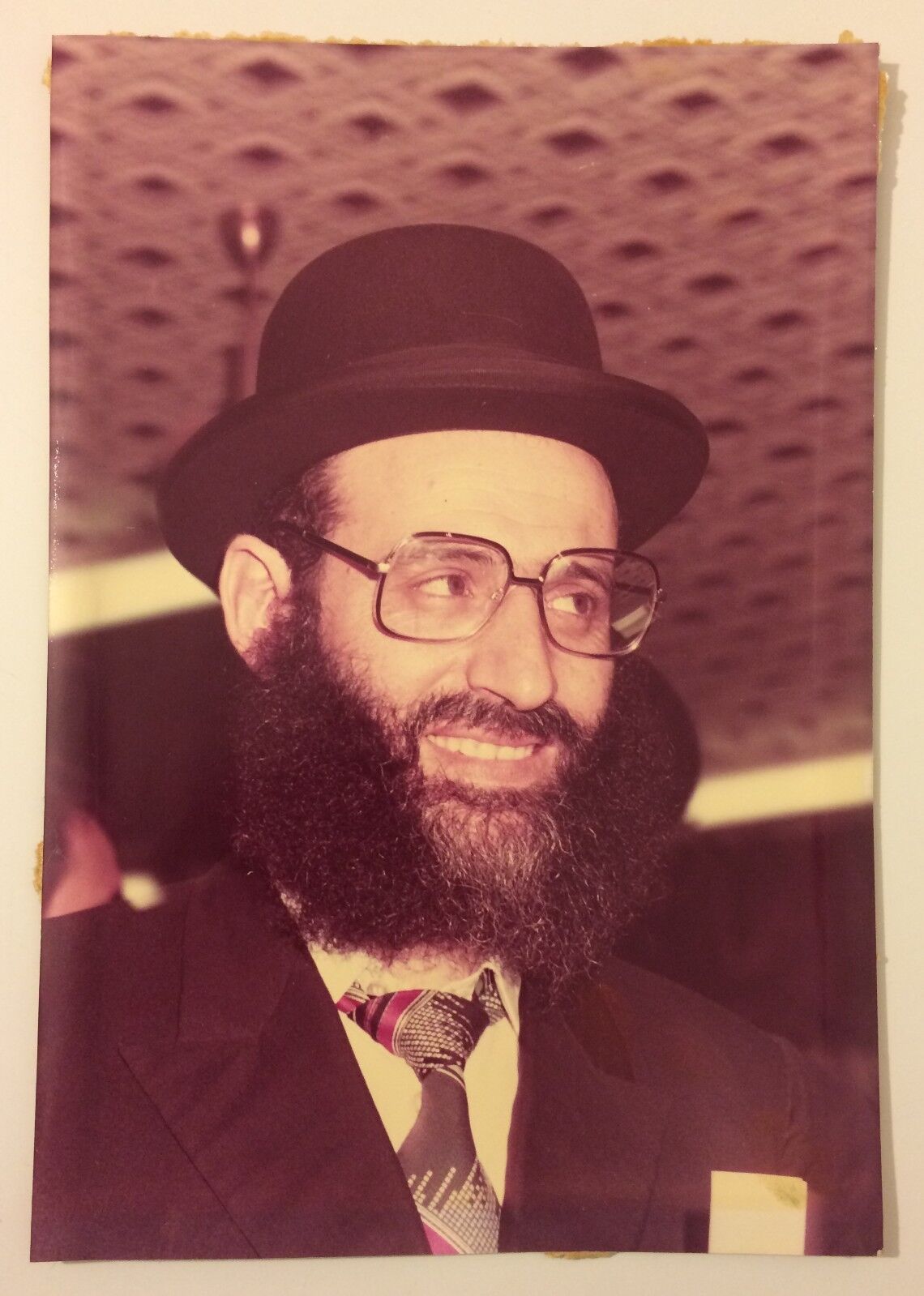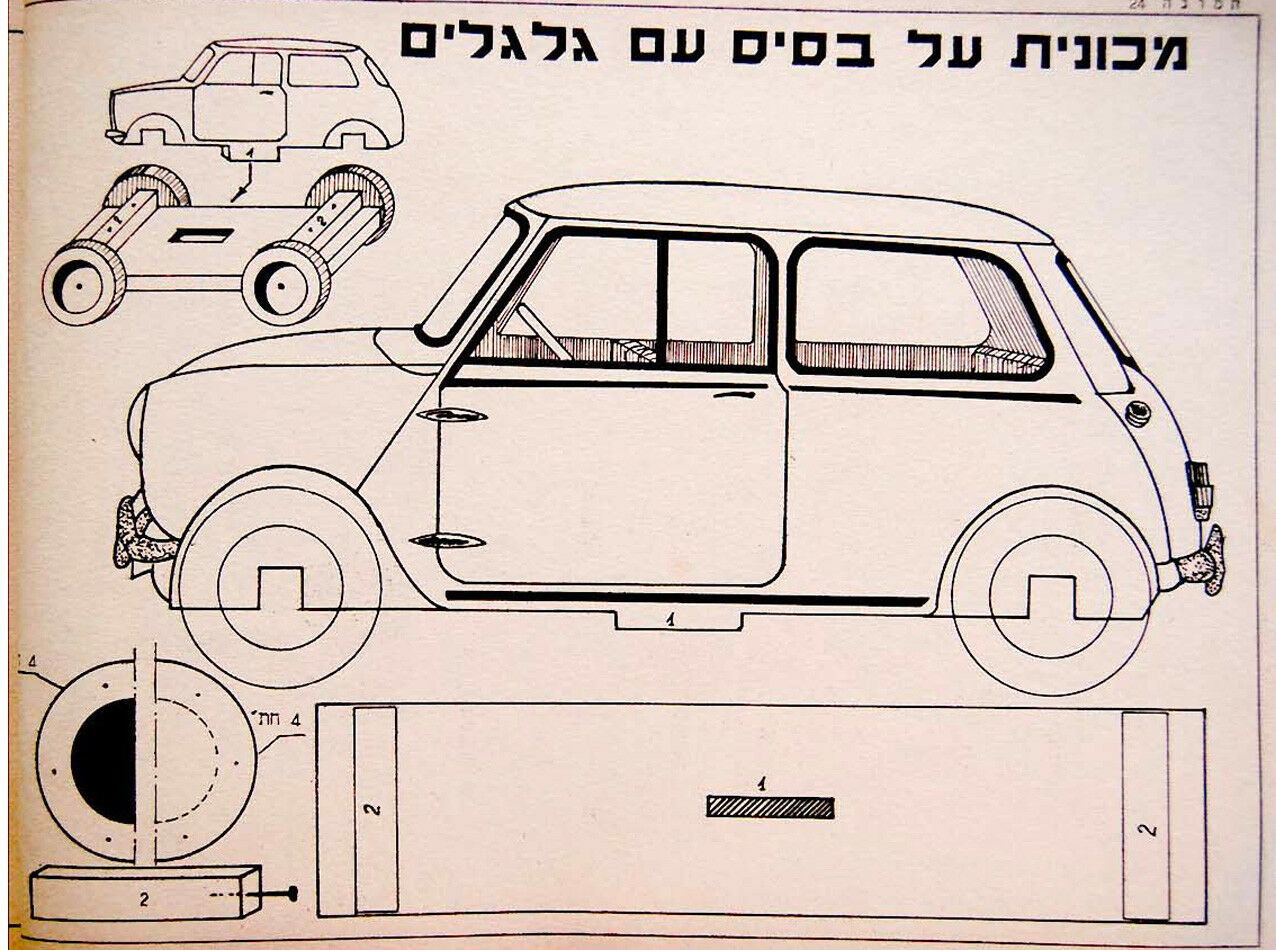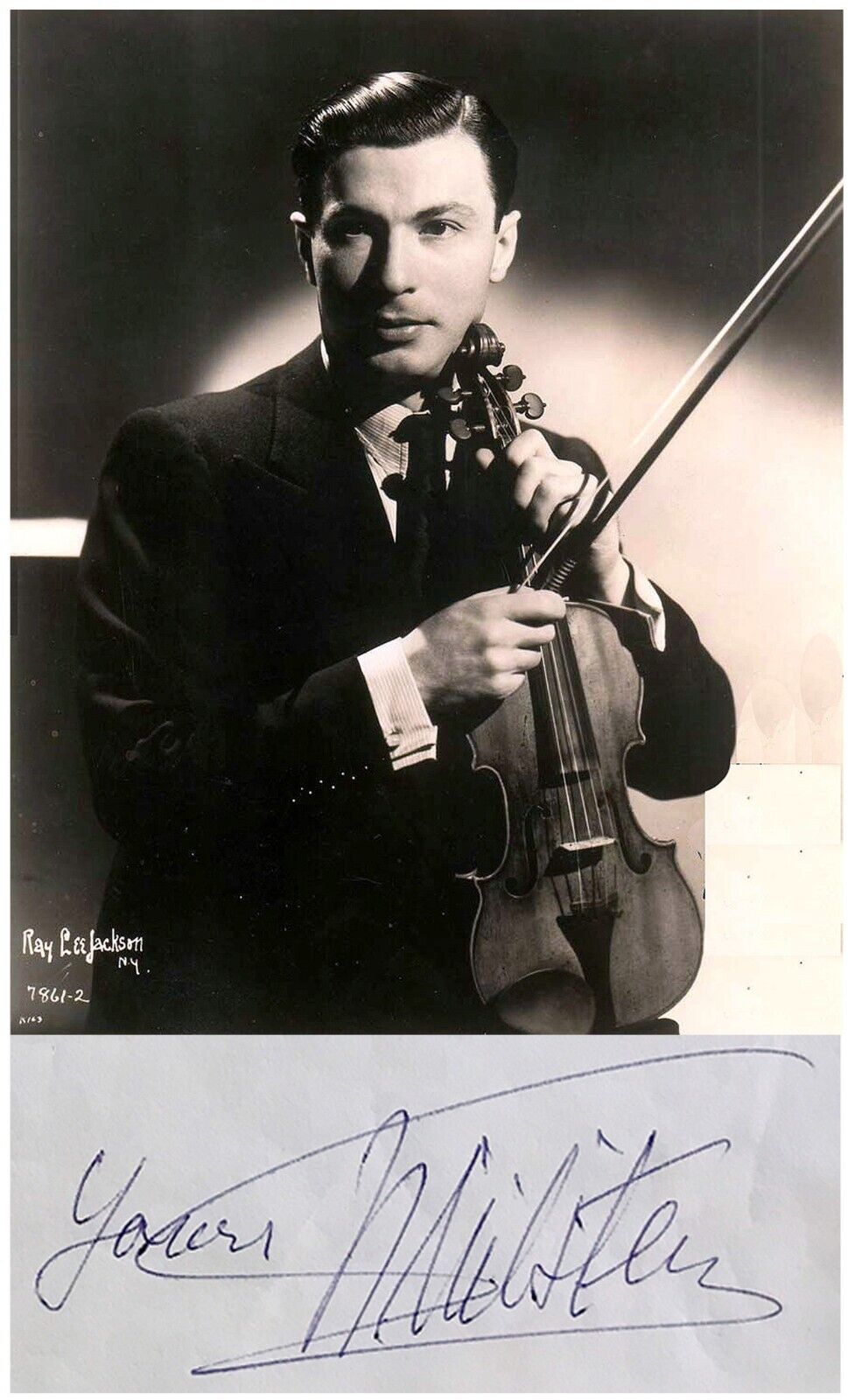-40%
1980 Jewish JABOTINSKY POSTER Irgun BETAR Jewish ISRAEL Judaica ETZEL Hebrew IZL
$ 50.16
- Description
- Size Guide
Description
DESCRIPTION:
Here for sale is an ORIGINAL vintage FOURTY YEARS OLD , 1980 POSTER of the legendary BETAR movement founder and leader , ZEEV JABOTINSKY . The REMEMBRANCE POPSTER commemorates 40 years to the death of JABOTINSKY. The poster carries JABOTINSKY's printed signature and SIX PHOTOGRAPHS. .Jabotinsky's image was illustrated by the Israeli Jewish artist of Hungarian descent OSWALD ADLER.
Printed on colored chromo . Dimensions around 19 x 27".
EXCELLENT CONDITION .
( Please look at scan for actual AS IS images )
Poster will be sent rolled in a special protective rigid sealed tube.
PAYMENTS
: Payment method accepted : Paypal
& All credit cards
.
SHIPPING
:
Shipp worldwide is $ 25 .
Poster will be sent rolled in a special protective rigid sealed tube.
Will be sent around 5 days after payment .
Ze'ev Jabotinsky MBE (
Hebrew:
זאב ז'בוטינסקי
; Russian:
Зеэв Жаботинский
, born Vladimir Yevgenyevich Zhabotinsky on 18 October 1880, died 4 August 1940) was a right-wing Revisionist Zionist leader, author, orator, soldier, and founder of the Jewish Self-Defense Organization in Odessa. He also helped form the Jewish Legion of the British army in World War I, and was a founder and leader of the clandestine Jewish armed organization Irgun. Born Vladimir Jabotinsky in Odessa in the Russian Empire (today in Ukraine), he was raised in a Jewish middle-class home and educated in Russian schools. While he took Hebrew lessons as a child, Jabotinsky wrote in his autobiography that his upbringing was divorced from Jewish faith and tradition. Jabotinsky's talents as a journalist became apparent even before he finished high school. His first writings were published in Odessa newspapers when he was 16. Upon graduation he was sent to Bern, Switzerland and later to Italy as a reporter for the Russian press. He wrote under the pseudonym "Altalena" (the Italian word for 'swing'; see also Altalena Affair). While abroad, he also studied law at the University of Rome, but it was only upon his return to Russia that he qualified as an attorney. His dispatches from Italy earned him recognition as one of the brightest young Russian-language journalists: he later edited newspapers in Russian, Yiddish, and Hebrew. He married Anna Markova Gelperin in late 1907. They had one child, Eri who died after the Six Day War at age 59—the same age as his father. After the Kishinev pogrom of 1903, Jabotinsky joined the Zionist movement, where he soon became known as a powerful speaker and influential leader. With more pogroms looming on the horizon, Jabotinsky established the Jewish Self-Defense Organization, a Jewish militia, to safeguard Jewish communities throughout Russia. Jabotinsky became the source of great controversy in the Russian Jewish community as a result of these actions. Around this time, he set himself the goal of learning modern Hebrew, and took a Hebrew name -
Vladimir
became
Ze'ev
("wolf"). During the pogroms, he organized self-defense units in Jewish communities across Russia and fought for the civil rights of the Jewish population as a whole. That year Jabotinsky was elected as a Russian delegate to the Sixth Zionist Congress in Basel, Switzerland. After Herzl's death in 1904 he became the leader of the right-wing Zionists. In 1906 he was one of the chief speakers at the Russian Zionist Helsingfors Conference in Helsinki, which called upon the Jews of Europe to engage in
Gegenwartsarbeit
(work in the present) and to join the demand for autonomy of the ethnic minorities in Russia. He remained loyal to this Liberal approach when established scores of years later with respect to the Arab citizens of the future Jewish State: "Each one of the ethnic communities will be recognized as autonomous and equal in the eyes of the law." In 1909 he fiercely criticized leading members of the Russian Jewish community for participating in ceremonies marking the centennial of the Russian writer Nikolai Gogol. In view of Gogol's anti-Semitic views, he said, it was unseemly for Russian Jews to take part in these ceremonies; it showed they had no Jewish self-respect.
During World War I, he conceived of the idea of establishing a Jewish Legion to fight alongside the British against the Ottomans who then controlled Palestine. In 1915, together with Joseph Trumpeldor, a one-armed veteran of the Russo-Japanese War, he created the Zion Mule Corps, which consisted of several hundred Jewish men, mainly Russians, who had been exiled from Palestine by the Turks and had settled in Egypt. The unit served with distinction in the Battle of Gallipoli. When the Zion Mule Corps was disbanded, Jabotinsky traveled to London, where he continued in his efforts to establish Jewish units to fight in Palestine as part of the British Army. Although Jabotinsky did not serve with the Zion Mule Corps, Trumpeldor, Jabotinsky and 120 V.M.C. did serve in Platoon 16/20th Battalion of the London Regiment. In 1917, the government agreed to establish three Jewish Battalions, initiating the Jewish Legion. Jabotinsky soldiered in the Jordan Valley in 1918 and was decorated for bravery. As an officer in the 38th Royal Fusiliers, Jabotinsky fought with General Allenby in 1917, and was decorated for heading the first company to cross the River Jordan into Palestine.After Ze'ev Jabotinsky was discharged from the British Army in September 1919, he openly trained Jews in self-defense and the use of small arms. After the 1920 Palestine riots, at the demand of the Arab leadership, the British searched the offices and apartments of the Zionist leadership, including Weizmann's and Jabotinsky's homes, for arms. At Jabotinsky's house they found 3 rifles, 2 pistols, and 250 rounds of ammunition. Nineteen men were arrested, including Jabotinsky. A committee of inquiry placed responsibility for the riots on the Zionist Commission, for provoking the Arabs. Jabotinsky was given a 15-year prison term for possession of weapons. The court blamed 'Bolshevism,' claiming that it 'flowed in Zionism's inner heart' and ironically identified the fiercely anti-Socialist Jabotinsky with the Socialist-aligned Poalei Zion ('Zionist Workers') party, which it called 'a definite Bolshevist institution.' Following the public outcry against the verdict, he received amnesty and was released from Acre prison After the war, Jabotinsky was elected to the first legislative assembly in Palestine, and in 1921, he was elected to the executive council of the World Zionist Organization. He quit the latter group in 1923, however, due to differences of opinion between him and its chairman, Chaim Weizmann, and established the new revisionist party called Alliance of Revisionists-Zionists and its youth movement,
Betar
(a Hebrew acronym for the "League of Joseph Trumpeldor"). His new party demanded that the Zionist movement recognize as its objective the establishment of a Jewish state along both banks of the Jordan River. His main goal was to establish a modern Jewish state with the help and aid of the British Empire. His philosophy contrasted with the socialist oriented Labor Zionists, in that it focused economic and social policy on the ideal of the Jewish Middle class in Europe. An Anglophile, his ideal for a Jewish state was a variety of nation state based loosely on the British imperial model, whose waning self-confidence he deplored.His support base was mostly located in Poland, and his activities focused on attaining British support to help in the development of the Yishuv. Another area of major support for Jabotinsky was Latvia, when his fiery speeches in Russian made an impression on the largely Russian-speaking Latvian Jewish community. In 1930, when Jabotinsky was visiting South Africa, he was informed by the British Colonial Office that he would not be allowed to return to Palestine.The movement he established was not a monolithic entity, but contained three separate factions, of which Jabotinsky's was the most moderate. Jabotinsky favored cooperation with the British, while more irredentistically-minded individuals like David Raziel, Abba Ahimeir, and Uri Zvi Greenberg focused on independent action in Mandate Palestine, fighting politically against Labor, the British Authorities, and retaliating against Arab attacks. During the 1930s, Jabotinsky was deeply concerned with the situation of the Jewish community in Poland. In 1936, Jabotinsky prepared the so-called 'evacuation plan', which called for the evacuation of the entire Jewish population of Poland to Palestine. In 1936, Jabotinsky toured Eastern Europe, meeting with the Polish Foreign Minister Colonel Józef Beck; the Regent of Hungary, Admiral Miklós Horthy, and Prime Minister Gheorghe Tătărescu of Romania to discuss the evacuation plan. The plan gained the approval of all three governments, but caused considerable controversy within Polish Jewry, on the grounds that it played into the hands of Polish anti-Semites. In particular, the fact that the 'evacuation plan' had the approval of the Polish government was taken by many Polish Jews as indicating Jabotinsky had gained the endorsement of what they considered to be the wrong people. The evacuation of Jewish communities in Poland, Hungary and Romania was to take place over a ten-year period. However, the controversy was rendered moot when the British government vetoed it, and the World Zionist Organization's chairman, Chaim Weizmann,
dismissed it
. Two years later, in 1938, Jabotinsky stated in a speech that Polish Jews 'were living on the edge of the volcano' and warned that a wave of bloody super-pogroms would be happening in Poland sometime in the near future. Jabotinsky went to warn Jews in Europe that they should leave for Palestine as soon as possible. Jabotinsky was a complex personality, combining cynicism and idealism. He was convinced there was no way for the Jews to regain any part of Palestine without opposition from the Arabs, but he also believed that the Jewish state could be home to Arab citizens. In 1934 he wrote a draft constitution for the Jewish state which declared that the Arab minority would be on an equal footing with its Jewish counterpart "throughout all sectors of the country's public life." The two communities would share the state's duties, both military and civil service, and enjoy its prerogatives. Jabotinsky proposed that Hebrew and Arabic should enjoy equal rights and that "in every cabinet where the prime minister is a Jew, the vice-premiership shall be offered to an Arab and vice versa."Jabotinsky died of a heart attack in New York, on August 4, 1940, while visiting an armed Jewish self-defense camp run by Betar. He was buried in New Montefiore cemetery in New York rather than in Palestine, in accordance with the statement in his will, "I want to be buried outside Palestine, may NOT be transferred to Palestine unless by order of that country's eventual Jewish government." After the State of Israel was established, a request by B'nai Brith that he be reinterred in Israel was turned down by Israeli Prime Minister David Ben-Gurion, who wrote in a letter dated May 7, 1958 to Judge Joseph Lamm of the Tel Aviv District Court, vice-president of B'nai Brith in Israel, that: "Israel does not need dead Jews, but living Jews, and I see no blessing in multiplying graves in Israel."In 1964, Jewish Legion Veteran Levi Eshkol permitted the reinterment of Jabotinsky and his wife in Jerusalem at Mount Herzl Cemetery. A monument to Jabotinsky remains at his original burial site in New York. Ze'ev Jabotinsky's legacy is carried on today by Israel's Herut party (merged with other right wing parties to form the Likud in 1973), Herut – The National Movement (a breakaway from Likud), Magshimey Herut (young adult activist movement) and Betar (youth movement). In the United States, his call for Jewish self defense has led to the formation of Americans for a Safe Israel and the Jewish Defense Organization. In Israel, there are more streets, parks and squares named after Jabotinsky than any other figure in Jewish or Israeli history.The Jabotinsky Medal is awarded for distinguished service to the State of Israel, and most Israeli cities have streets named after him. Jabotinsky is buried in Israel's Mount Herzl national cemetery. On 11 August 2008 Israeli Education Minister Yuli Tamir announced plans to remove Jabotinsky's work from the Israeli national education curriculum. ******** WIKIPEDIA about : The Betar Movement (בית"ר, also spelled Beitar) is a Revisionist Zionist youth movement founded in 1923 in Riga, Latvia, by Ze'ev Jabotinsky. Betar members played important roles in the fight against the British during the Mandate, and in the creation of Israel. It has been traditionally linked to the original Herut and then Likud Israeli political parties. The name Betar בית"ר stands for "Brit Yosef Trumpeldor" ( ברית יוסף תרומפלדור ). Joseph Trumpeldor was a Jewish fighter who fell in the battle of Tel Hai coining the phrase: "Never mind, it is good to die for our [own] country" (Hebrew: "לא נורא, טוב למות בעד ארצנו"). (The name is probably also an allusion to the last Jewish fortress to fall during the Bar-Kochba rebellion, Betar.) In the post-Versailles Treaty Poland,
Betar
became the fighting arm of the disenchanted right-wing Jewish settlers, who felt victimized by the treaty's anti-German stance which, through the creation of Poland, deprived them of the Germanic culture and as they spoke Yiddish - the German language.Whereas in other parts of Poland, that until the Versailles Treaty belonged to Russia, Jews would express a more leftist sentiment. In the Polish National Committee's report of 8th December 1919, the then temporary Polish Governing Body, we find: "In Kielce in the Polish Kingdom, a group of 300 Jewish youths organized a public demonstration on the city streets, shouting: 'Long live Lenin! Long live Trocky! Down with Poland!'. They were confronted by antagonized populous; in the bloody confrontation that ensued, about 40 demonstrators were killed. They fell victim not because they were Jews, but because they were Bolsheviks, because they offended Polish national sentiments and attempted to lead the country towards anarchy."It is in this environment, that Jews felt a need to create a coherent and strong self defense arm. Latvia, with its historical and lingual links to German culture and language, offered an ideal haven.Jabotinsky also wanted to connect the name of the first Jewish fighter after 2000 years to the name of the last fort of Jewish uprising against the Roman Empire in the Bar Kokhba's revolt, Betar, showing that Betar was intent to create a new generation of Jewish warriors. In order to produce the needed acronym, the normal spelling of Trumpeldor's name in Hebrew was changed - תרומפלדור instead of טרומפלדור.In 1936 Betar membership in Poland alone numbered over 50,000 and was in permanent conflict with the polish radical nationalist movement, National Radical Camp or ONR. ONR had about a tenth of Betar's membership. During World War II, Betar members, former Polish Army officers, founded Żydowski Związek Walki (Jewish Fighting Union) which fought in the Warsaw Ghetto Uprising.In the campaign for Israel's creation in British controlled Palestine, some Betar members fought in the militant Irgun against British rule. A few "graduates" from Betar Poland even joined Abraham Stern's more radical Lehi militant group. Members of Betar were also instrumental in setting up Israel's navy.Many of Israel's most prominent public figures on the Right have been "graduates" of Betar, including former Prime Ministers Menachem Begin and Yitzhak Shamir, current Prime Minister Ehud Olmert, current Foreign Minister Tzipi Livni, and former Defence Minister Moshe Arens Current Kadima Member of Knesset Yoel Hasson is a former national head of Betar in Israel.Today, the Betar Movement is primarily involved in Jewish and Zionist activism. Tagar, Betar's young adult movement, was active on many university campuses throughout North America during the 1980s as part of the Revisionist Zionist Association. Although Betar has suffered a drastic decline in membership and activities since the 1970s, the movement continues to boast a few strong branches. The most notable of these are the Betar chapters of Australia and Cleveland, Ohio. Once a vibrant movement tied to the opposition Herut Party, Betar's following in Israel has declined since the 1970s as a result of a changing political situation. One important change was the rise of the religious right-wing in the 1970s. Though Betar had many of the same political goals as the rapidly growing Gush Emunim (Believers' Bloc) and Bnei Akiva youth movements (tied to the National Religious Party), they remained a secular movement and never took the initiative that their counterparts did in settling the West Bank and Gaza. During the 1980s as a result of the Camp David Accords negotiated by Menachem Begin (the leader of Herut and its successor movement, Likud), a similar effect began with the Secular Right, as more extreme movements appeared there and drew away youth. As the Likud party, under Benjamin Netanyahu's leadership, moved away from the traditional values of Revisionist Zionism, Betar drew criticism from many on the political right. Old-time Herut supporters, viewing themselves as ideological purists, have claimed that Betar had turned into a breeding grounds for youth seeking political careers. In the late 1990s, Benny Begin broke away from Likud to form Herut – The National Movement. This trend has continued in many countries around the world, and can be seen on Betar's central website. Betar's chief disadvantage was the predominance of other youth groups. Belonging to the left wing and the Kibbutz movement, Hashomer Hatzair ("Young Guard" - Socialist Zionist), HaNoar haOved vehaLomed ("the Working and Learning Youth" - Labor Zionist), and Habonim Dror (Freedom Builders - Socialist/Labor Zionist), had taken most Israeli youth in throughout the 1950s-70s. Alongside them were the Tzofim (Scouts) and Bnei Akiva. Today Betar remains a marginal youth movement in both Israel and the Diaspora, and has remained far from the power that its parent movement, the Likud, had on the country. Many Betar members, however, have become important political figures in both the Likud and Kadima parties.Betar sponsors sports clubs, the most notable is the popular Beitar Jerusalem (or sometimes spelt Betar Jerusalem) football (soccer) club.**** Oswald Adler View exhibitions » View videos and articles » Visit our Information Center to browse the artist file » Oswald Adler, painter, Graphics, designer of Stamps and Medals, born 1912, Hungary. Immigrated in 1960. Designed postage stamps in Israel and abroad. Also designed medals and coins in Israel. Education 1938 evening courses, State Academy of Fine Arts, Budapest 1969 Masterclass for graphic art, Academy of Fine Arts, Vienna 1970-71 Sir John Cass School of Art, London 1984-85 Open Studio, The Heatherley School of Fine Arts, London Teaching 1981-86 Institute of Plastic Arts, Bat Yam 1983-88 Artists' Association, Tel Aviv, figure drawing and portraits Awards And Prizes 1956 Silver and Bronze Medals for Sports Stamps, Rome 1957 11th Triennale Exhibition of Graphic Design, Milan, Silver Medal ebay5817 folder 204
